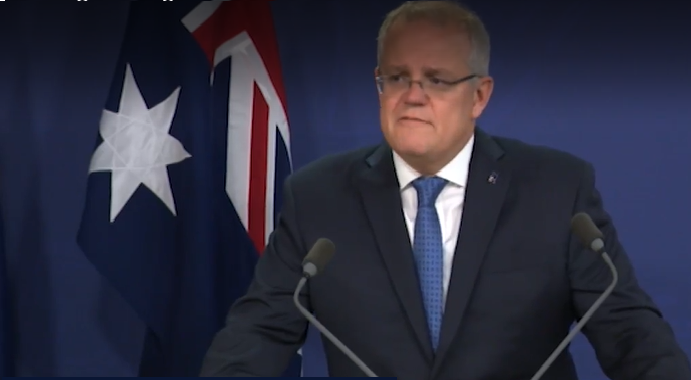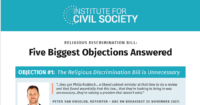Australians who regularly practise their religion are in a minority. Those who follow traditional religious practices on matters like sexual ethics, marriage, sanctity of human life, prayer and fasting or religious dress are an unpopular minority in some quarters. Like other minorities, they experience discrimination, but they don’t have the same legal protection.
All federal, state and territory anti-discrimination laws prohibit discrimination based on race, gender, disability, age, sexual orientation and gender identity. But discrimination based on religious belief or activity has no federal anti-discrimination law protection, limited Fair Work Act protection, and no protection in NSW or in South Australia. We would not put up with those gaps for other discrimination, so why should we for religious discrimination?
The Ruddock Expert Panel on Religious Freedom received over 15000 submissions and recommended a Religious Discrimination Act making it unlawful to discriminate on the basis of a person or organisation’s “religious belief or activity”, including not holding any religious belief. It recommended appropriate exclusions, including for religious bodies, religious schools and charities. The Morrison government has accepted this recommendation and released a draft Religious Discrimination Bill.
Most of the bill is standard anti-discrimination law which will protect people like Soaliha, the young Sydney Muslim woman who was allegedly refused entry to a hotel unless she removed her hijab, and Madeline, a young Christian woman who was sacked for saying it was OK to vote against same sex marriage.
See the full article by Mark Sneddon in The Sydney Morning Herald here.








Recent Comments